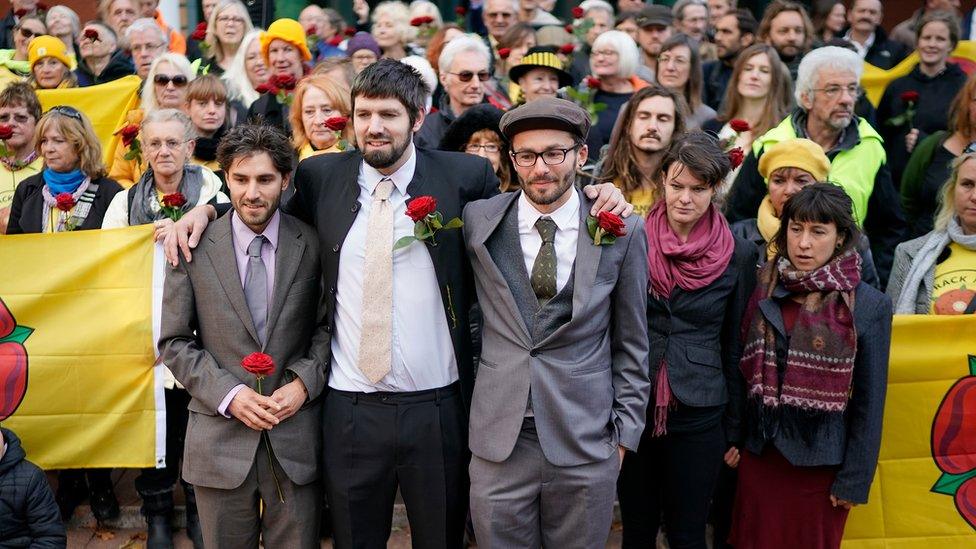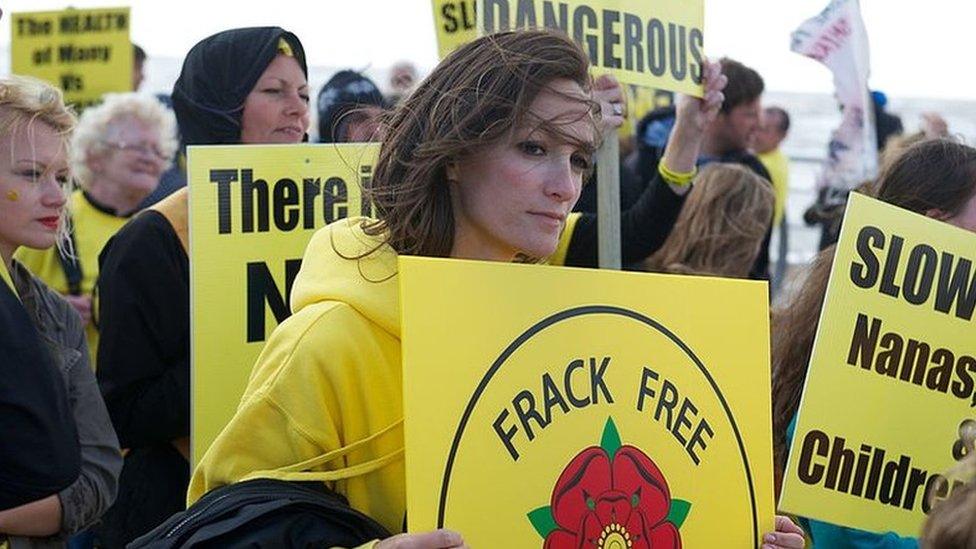Three jailed fracking protesters freed on appeal
- Published
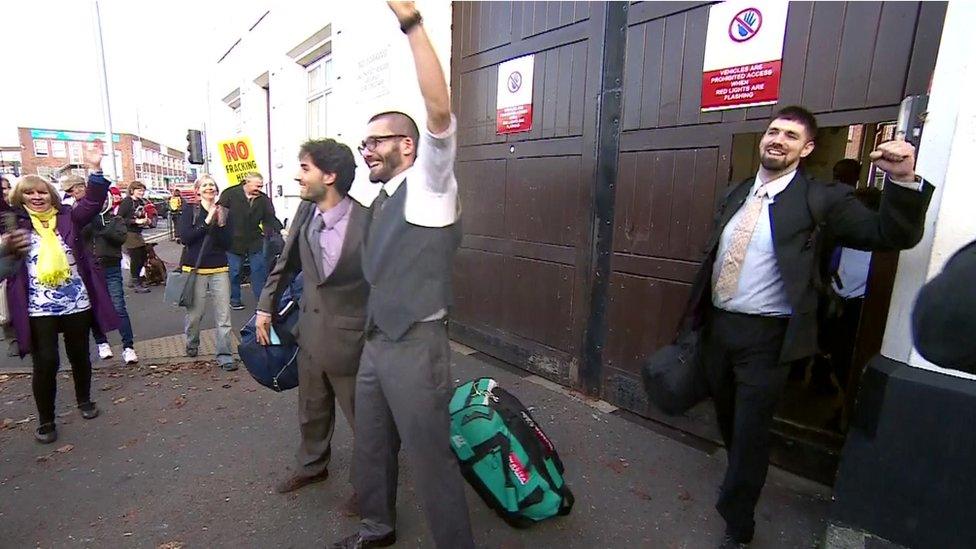
The three men left prison hours after the ruling was handed down
Three men jailed for a fracking site protest have been freed after judges ruled their sentences were "excessive".
Simon Blevins, Richard Roberts and Rich Loizou became the first UK anti-fracking protesters to be sent to prison, after climbing lorries at Cuadrilla's Lancashire site.
Court of Appeal judges ruled they should not have been jailed and imposed conditional discharges.
The judgement was met by applause and singing from supporters in the court.
A complaint against the original sentencing judge, the details of which are unknown, is being investigated.
Speaking outside HMP Preston, shortly after his release, Loizou said the court's decision "affirmed that when people peacefully break the law out of a moral obligation to prevent the expansion of fossil fuel industries, they should not be sent to prison".
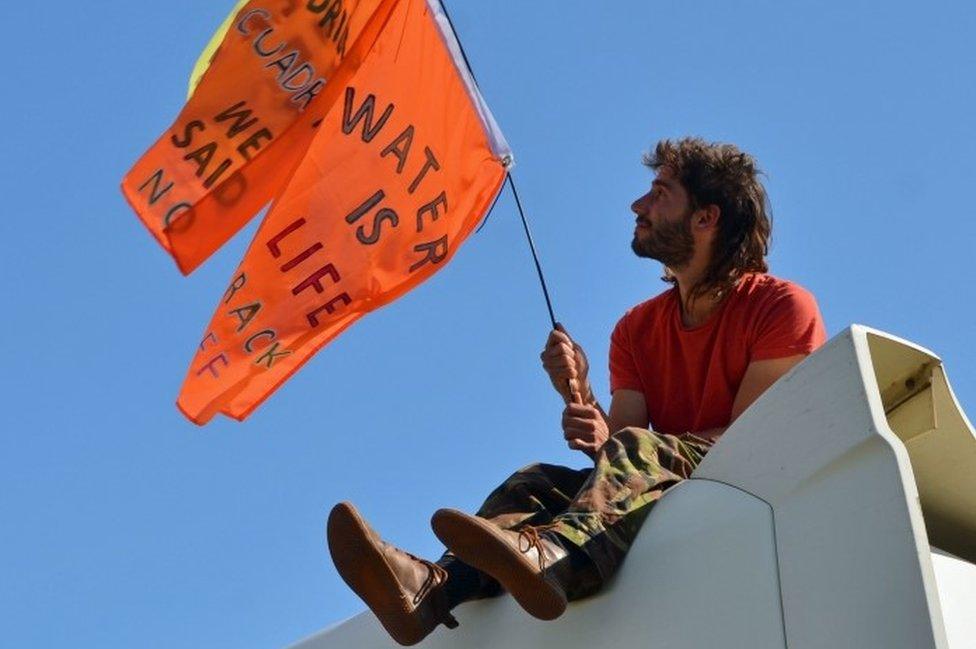
Loizou's father said the time in prison would "not change Rich's mind"
Blevins, 26, Loizou, 31, from Devon, and Roberts, 36, were convicted of public nuisance at Preston Crown Court in September.
The three defendants had climbed on lorries outside the fracking site in Preston New Road in July 2017, in a demonstration which lasted close to 100 hours.
Blevins, from Sheffield, and Roberts, from London, were jailed for 16 months each and Loizou received a 15-month custodial term.
The Lord Chief Justice Lord Burnett said an "immediate custodial sentence in the case of these appellants was manifestly excessive".
"In our judgment, the appropriate sentence which should have been imposed... was a community order with a significant requirement of unpaid work," he said.
"But these appellants have been in prison for six weeks.
"As a result, and only for that reason, we have concluded that the appropriate sentence now is a conditional discharge for two years."
About 200 people marched through Preston in support of the men on 6 October
The judge did not change the sentence of Julian Brock, 47, from Torquay, who received a 12-month suspended term for his part in the protest after admitting public nuisance.
He added the full reasons for the ruling would be published at a later date.
A spokesman for the Judicial Conduct Investigations Office said it had received a complaint regarding Judge Robert Altham, which "will be considered in accordance with the Judicial Conduct Rules 2014".
Speaking after the hearing, Loizou's father Platon said the experience would "not change Rich's mind", adding: "Richie and the rest of the boys... will continue to do this and continue to tell the whole world about what we are doing to ourselves."
Roberts's partner Michelle Easton said the families would catch the next train to Preston to "go and pick our boys up".
"It is still a conviction but it is within the rights that we have in this country - we don't lock up protesters who are peaceful," she said.
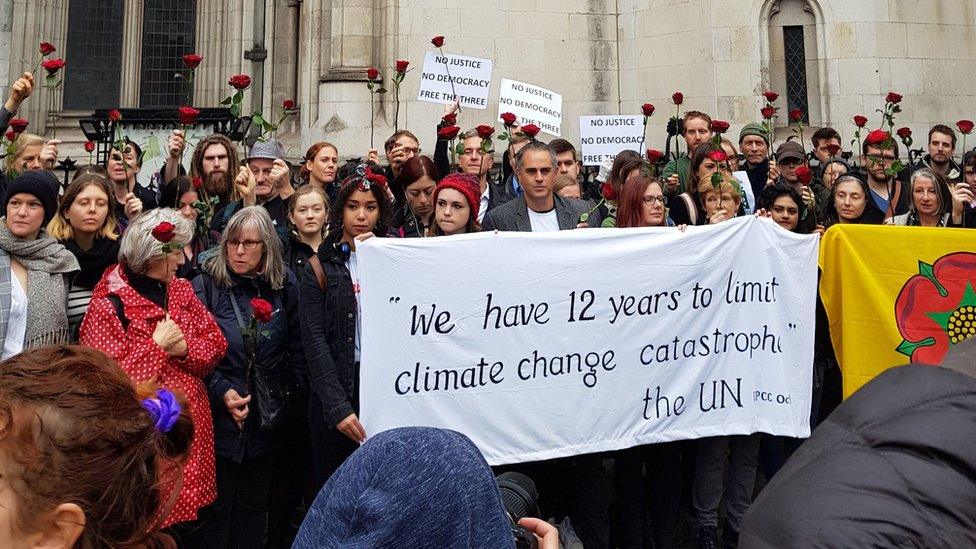
A large group of the men's supporters gathered at the court before the hearing
The men's appeal was supported by human rights organisation Liberty and environmental campaign group Friends of the Earth.
Katie de Kauwe, the environmental group's lawyer, said the sentences had been "disproportionate" and Liberty's Emma Norton called the ruling a "victory for human rights and civil liberties".
Kirsty Brimelow QC, who acted for the three men, said their legal teams would now consider whether to challenge their convictions on the basis of "apparent bias" by Judge Altham, who conducted the trial and sentenced the activists.
Lord Burnett said during the hearing there was "no evidence" that the judge had any financial interest in fracking.
Following the men's convictions, the Daily Mirror reported, external Judge Altham had family links to the oil and gas industry.
The judicial code of conduct states a judge's impartiality may be questioned if family members are "politically active" or have "financial interest" in the outcome of a case.
A spokesman for the Judges' Council said there were "longstanding principles, set out in case law, which guide how judges approach possible conflicts of interest".
"They ensure that when hearing a case, a judge will be mindful of possible conflicts of interest and can draw relevant matters to the attention of parties in the case," he added.
Fracking for shale gas began at the Preston New Road site on Monday.
It is the first time hydraulic fracking has taken place in the UK since it was linked with earthquakes in Blackpool in 2011.
- Published15 October 2018
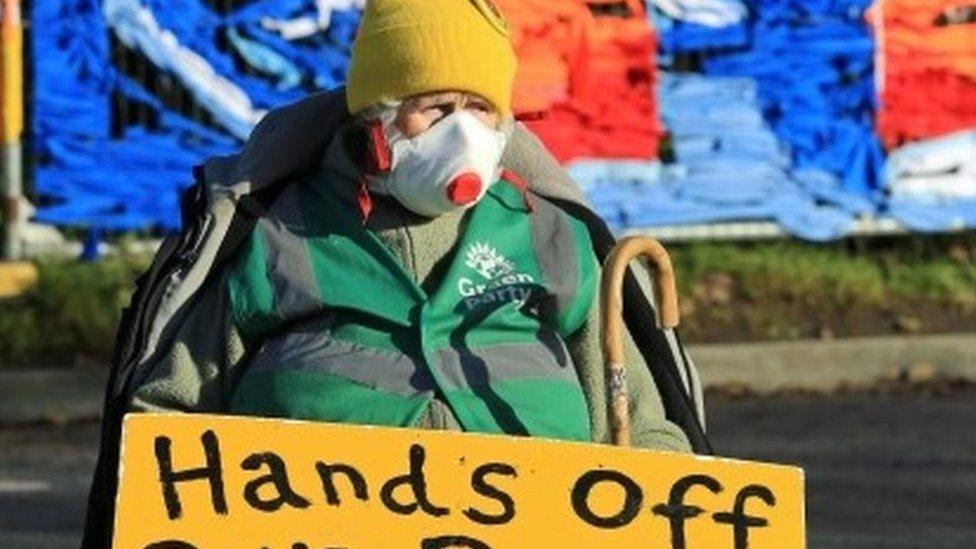
- Published5 October 2018
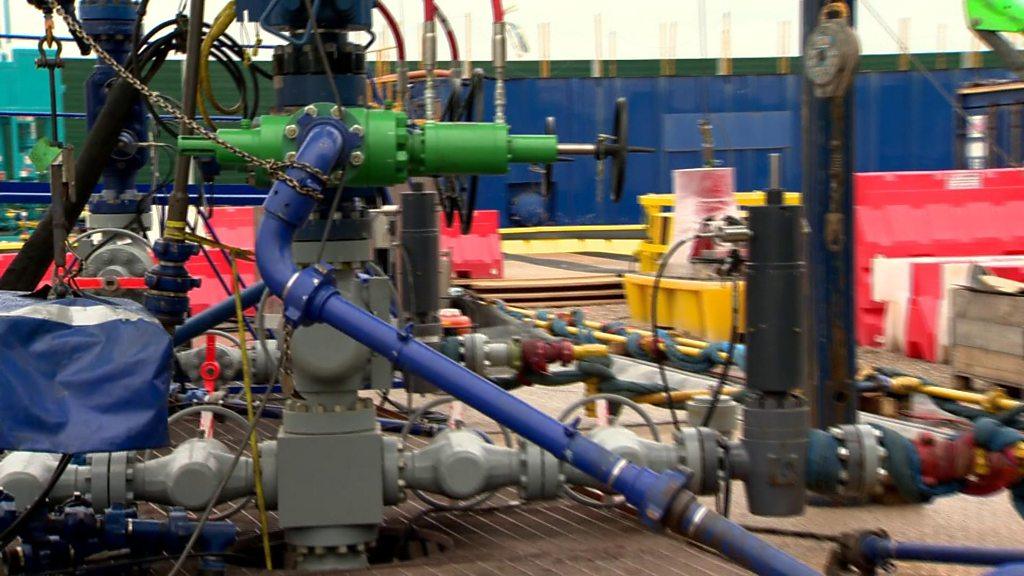
- Published26 September 2018
